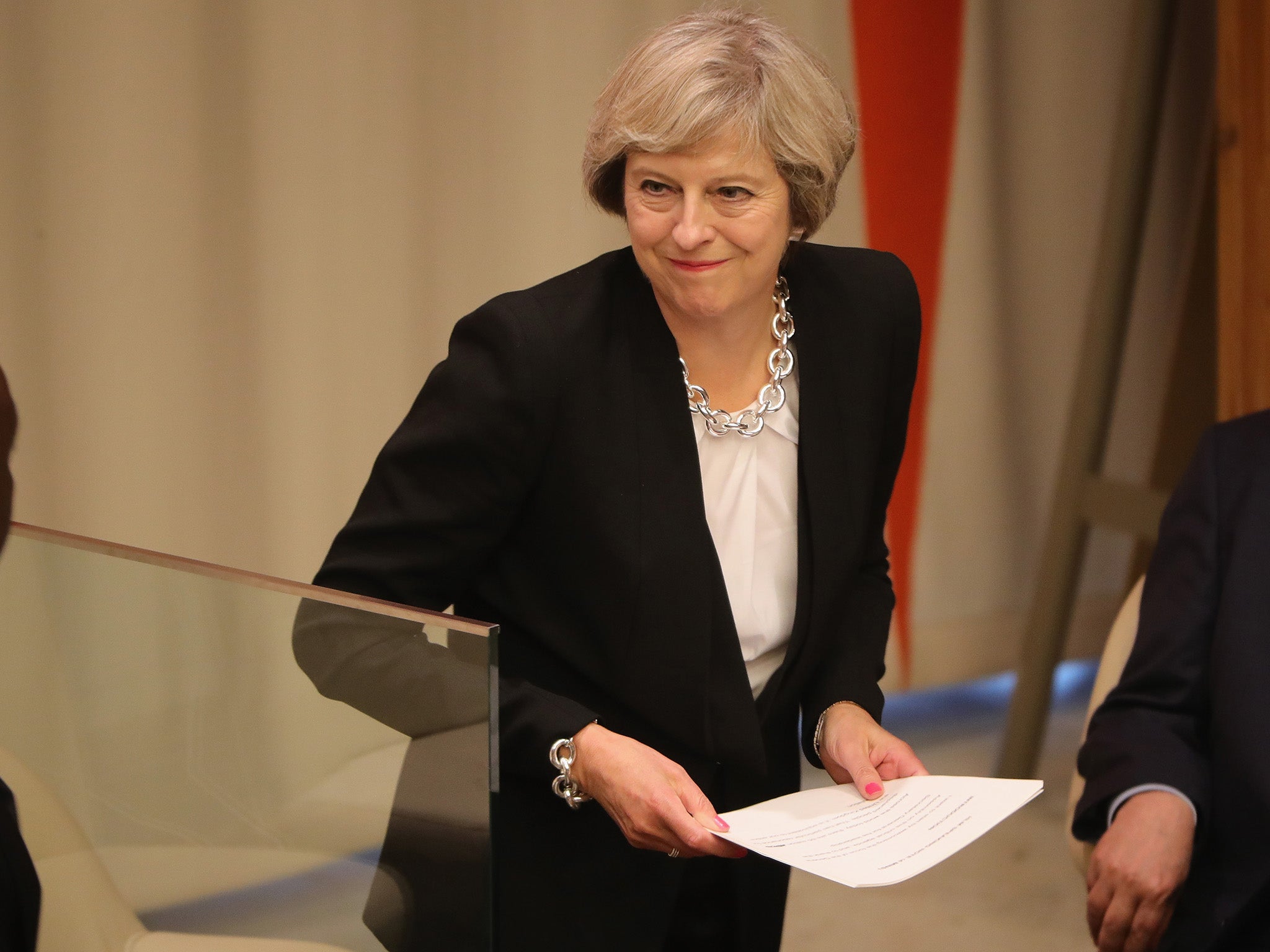Did the dog eat Theresa May's homework on grammar schools?
If the aim of education policy is to raise standards for all, and to correct and reverse the decline in social mobility, then a widespread expansion in selection is not the best way to do it

Whether the public has had enough of “experts” or not – to revisit one of the sillier utterances to fall from the lips of former Education Secretary Michael Gove – there has been a poverty of informed debate about grammar schools. Anecdote has enjoyed precedence over fact, which is not a sound foundation for building a new system. We should welcome, therefore, the further confirmation of that fact in the forensic review of the existing grammar schools published by the Education Policy Institute. This shows clearly that there is “no evidence” that an expansion of the network would raise standards. Further, such an expansion might increase the “attainment gap” between richer and poorer children.
It might have been better had the Prime Minster studied such evidence before she announced her plan to create a whole new generation of grammars – a “strange” scheme, as the former Education Secretary Nicky Morgan described it. It did indeed come out of nowhere; in particular, it was not part of the Conservatives’ election manifesto, and it seems to have been put together in something of a rush. The dismissive reaction of the vice-chancellor of Oxford to the notion that the university should run secondary schools spoke volumes about the lack of consultation put into these proposals. The suspicion remains that it has been driven by more purely political than educational qualifications, by a Tory leader with a taste for populism.
Theresa May and many other fans of the grammar school seem to have as their principal argument that their own grammar served them very well indeed. That is undeniably true, and there was always great deal to be said for those institutions’ ethos, standards and long traditions. For some pupils, they did offer a ladder of opportunity. However, the fact that Ms May went to one is not a sufficient reason to reform the education system yet again.
It has always been apparent that the Prime Minister’s signature policy – aside from “Brexit means Brexit” – is not evidence-based. If the aim of education policy is to raise standards for all, and to correct and reverse the decline in social mobility, then a widespread expansion in selection is not the best way to do it. Standards, it is sometimes forgotten, have been raised in recent years, through investment in schools, through new models such as the academies, the streaming and setting for pupils of different inclinations and abilities and through the painstaking work of teachers. But this work is too often derided by those who have little understanding of the dedication and sheer hard work these professionals deliver every school day.
Selection at 11 and at 14 is too rigid a plan. A well-run comprehensive school, high school, sixth-form college, free school, faith school or academy can work well for all of its pupils throughout their development. An emphasis on discipline, academic, sporting, or musical achievement, attention to both the gifted and those who need extra help – these are the qualities of an institution that will serve the whole community.
It may well be that, given the existence of such schools alongside grammars, that an expansion of the grammar schools might not be the disaster that Jeremy Corbyn, for example, suggests. The new grammar schools might not actively damage the others, as the EPI suggests. Nonetheless, they would not usefully add to the existing, diverse mix in the educational eco-system, and there remains the risk that a major expansion in grammar schools would result in a return to the old two-tier grammar/secondary split at age 11. Such new, reinvented grammar schools might produce prime ministers of the future, but we do not have to have them for the state sector to thrive and it would not be good for schooling on the whole.
Ms May’s plan amounts to a gamble with the lives of the young. It is also a political gamble. She inherits the first Conservative overall majority since the 1990s, but it is a slender one. The other parties in the House of Commons, apart from some Northern Ireland Unionists and the sole Ukip MP, are arraigned against her on this matter and her own side cannot be counted entirely reliable. Ms Morgan has already expressed her disquiet; the former Chancellor, George Osborne, seems unenthusiastic about 80 per cent of the debate being focused on 20 per cent of schoolchildren. Mr Gove, for a change, might well wonder if the time has in fact come to pay more attention to the experts in “the blob” of the educational establishment.
There are, in other words, enough grammar-sceptics on her own benches and in the House of Lords to block the May revolution. Ms May has not done her homework. Or perhaps the dog ate it.
Join our commenting forum
Join thought-provoking conversations, follow other Independent readers and see their replies
Comments
Bookmark popover
Removed from bookmarks